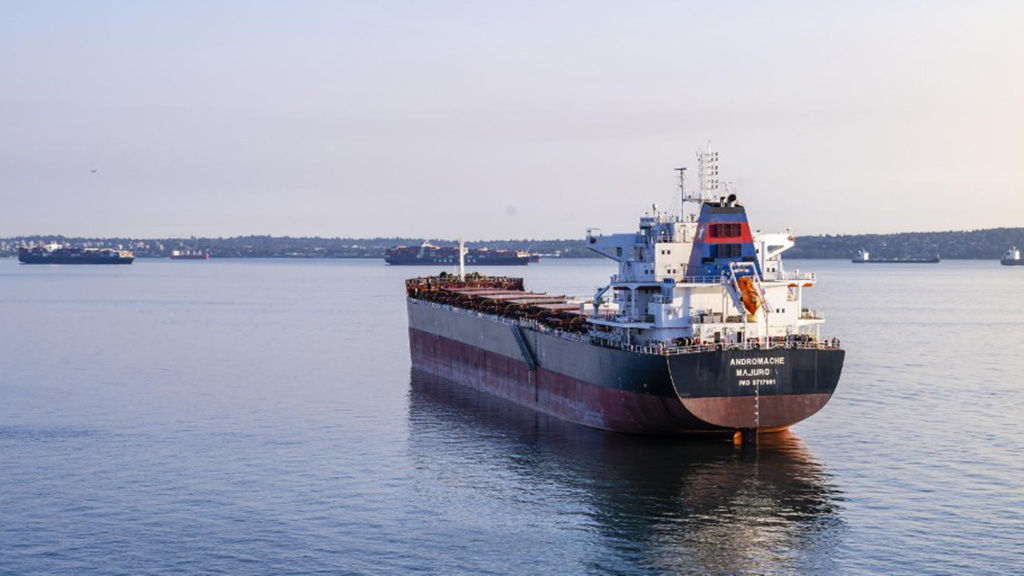As the International Longshore and Warehouse Union (ILWU) Canada strike enters its first full week, Chris Gardner says the economic ramifications for the construction industry will be felt across the nation.
“This is not an isolated labour dispute,” Gardner, president of the Independent Contractors and Businesses Association, said in an interview. “Twenty-five per cent of the goods that come into and go out of Canada go through Western Canadian ports.
“The concern we have is that there’s a national public interest,” he said.
On Canada Day, approximately 7,000 members of the ILWU started striking, effectively shutting down some 30 ports across British Columbia.
Gardner said a ripple effect of material and equipment cost hold ups will affect the construction industry from coast to coast while the industry is still rebounding from the pressures of the pandemic.
“We’re still dealing with the knock-on effects of the COVID-19 global pandemic. The residential construction cost index is up 50 per cent from Q1 2020,” he said.
And the strike is only going to exacerbate these issues.
“If you think of some of the inputs that are now going to be affected ― the mechanical equipment, electrical parts, plastic materials that are imported ― the fact that they now will be sitting in containers and not getting to jobsites is going to put further pressure on project schedules,” he said.
“It will impact the whole process of finishing your project. These delays will increase costs.”
Chris Atchison, president of the British Columbia Construction Association, said the shutdown will fuel inflation, increase costs for everyone and hurt the national economy.
“With B.C. contractors already feeling operational pressures tied to high demand for construction services, coupled with a continuing shortage in labour supply and rising costs due to post-pandemic supply chain issues, this added strain will push B.C.’s builders into an even tougher spot while also negatively impacting the more than 230,000 British Columbians employed in the sector,” said Atchison.
Gardner and Atchison, via their respective associations, were part of a joint letter sent to Prime Minister Justin Trudeau on Wednesday, July 5, signed by more than 130 associations, chambers of commerce and organizations across the country.
Signees include all the chambers of commerce in Quebec, the Canadian Home Builders’ Association, the Canadian Chamber of Commerce, the Toronto Region Board of Trade and the Halifax Chamber of Commerce, to name a few.
The letter calls on the Government of Canada to pass back-to-work legislation to get the ports running again.
The letter notes approximately $800 million worth of goods are handled in western Canadian ports every day.
Gardner said federal intervention to uphold the Canadian supply chain was most recently seen during the catastrophic floods that crippled routes across British Columbia in 2021.
“Every level of government moved very quickly to restore connectivity to the Port of Vancouver when it was shut off from the rest of the country. Everybody sprung into action,” said Gardner.
“By comparison, the government today seems to be almost cavalier about the response to this.”
Gardner pointed out the BC Maritime Employers Association (BCMEA) and ILWU have been negotiating since February and it has evidently not gone well. He said everyone wants the best outcome for both parties, but the national cost needs to be considered.
“Government has a responsibility to act more forcefully than it has because the repercussions are going to be significant the longer the strike goes on.”
On July 6, Rob Ashton, president of the ILWU, accused the BCMEA of using traditional smear tactics to shake public faith in the striking workers.
“This is straight out of the strikebreaking playbook. Instead of sitting down and negotiating with workers, they’re funding a dirty-tricks media campaign, using anonymous sources to selectively leak information to reporters,” Ashton said in a press release.
Ashton said his members are facing skyrocketing cost-of-living bills and deserve to earn more after working in dangerous conditions throughout the entire pandemic.
“We’re telling the BCMEA to call off their attack campaign and come back to mediation.”
On July 5, the BCMEA released a statement saying, “the safety and security of Canada’s supply chain is at imminent risk” and that the strike has potentially disrupted nearly $4 billion worth of cargo.
The release stated the BCMEA had offered to engage in a mediation-arbitration process that could potentially end in a binding outcome.
“BCMEA continues to advance opportunities for the parties to reach an equitable deal for the benefit of all Canadians.”











Recent Comments
comments for this post are closed